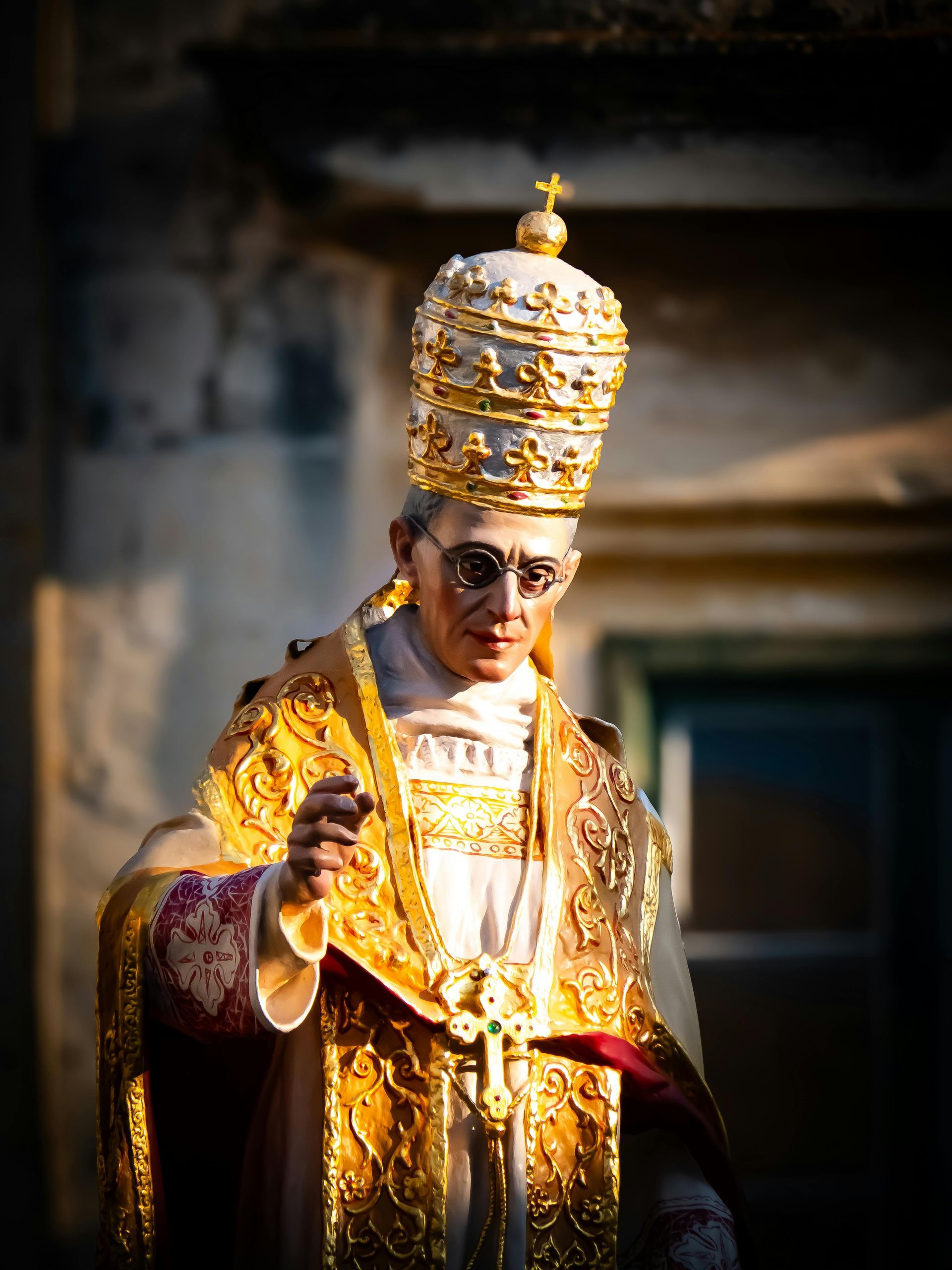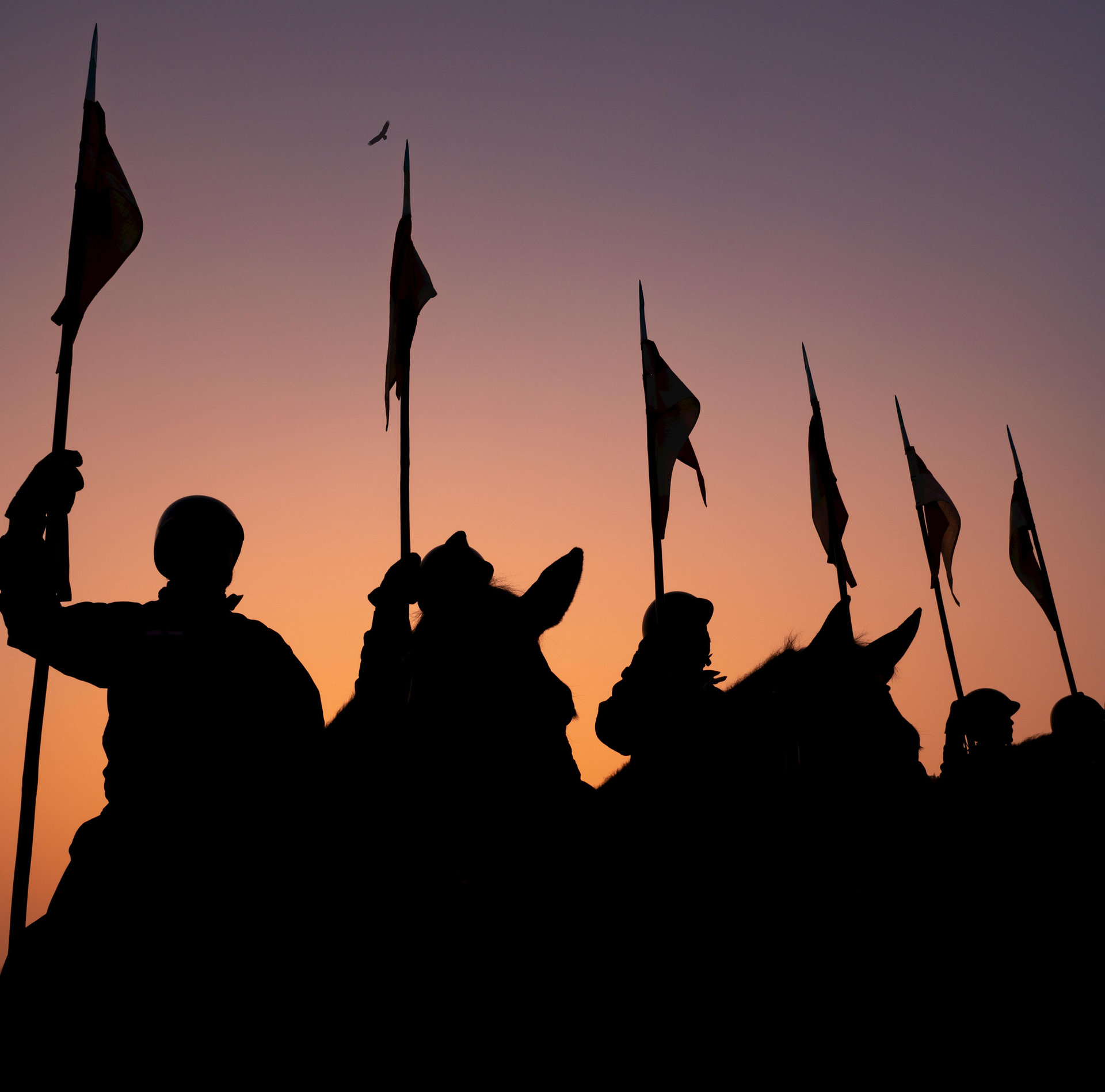THE CURSE OF CHURCH AND STATE, PART 1: Canon and Feudal Law
In times of persecution and danger, anonymity has long been the necessary cloak for the truth. Speaking of the oppression under which the truth labored as the Revolutionary War approached, the eventual second president of the United States, John Adams, anonymously stated the following in the Boston Gazette in 1765:
Every body knows how dangerous it was to speak or write in favour of any thing in those days but the triumphant system of religion and politicks. And our fathers were particularly the objects of the persecutions and proscriptions of the times. It is not unlikely therefore, that, although they were inflexibly steady in refusing their positive assent to any thing against their principles, they might have contracted habits of reserve, and a cautious diffidence of asserting their opinions publickly. These habits they probably brought with them to America, and have transmitted down to us.i
Adams was saying that the pilgrims who fled Europe passed down a knowledge of the dangers which public opinions could bring from kings and priests. The Papacy was hostile to not only religious freedom, but to freedom of thought, speech and the press. English monarchs, both Catholic and Anglican, had harshly punished dissenting views. The “fathers” Adams references are those who suffered for their faith and opinions in the public square, even to the point of martyrdom. They had consequently learned to be careful when expressing their views publicly, especially on the “triumphant system of religion and politicks”.
Today, many so-called Christians loudly (and often arrogantly) demand that church and state once more come together in America and enforce their version of Christianity on the population by force of law.ii But of course such a system will result in the same oppression and punishment of dissent as it has in the past.
Politicians and advocates of church/state union in America might be surprised to hear the second president of the United States speak with such ardor against their cause. But John Adams denounced the union of church and state as “tyrannical” and “wicked”. Hear this father of American independence in his own words:
Since the promulgation of Christianity, the two greatest systems of tyranny that have sprung from this original, are the canon and the feudal law…
By the former of these, the most refined, sublime, extensive, and astonishing constitution of policy that ever was conceived by the mind of man was framed by the Romish clergy for the aggrandizement of their own order. All the epithets I have here given to the Romish policy are just, and will be allowed to be so when it is considered, that they even persuaded mankind to believe,faithfully and undoubtingly, that God Almighty had entrusted them with the keys of heaven, whose gates they might open and close at pleasure; with a power of dispensation over all the rules and obligations of morality; with authority to license all sorts of sins and crimes; with a power of deposing princes and absolving subjects from allegiance; with a power of procuring or withholding the rain of heaven and the beams of the sun; with the management of earthquakes, pestilence, and famine; nay, with the mysterious, awful, incomprehensible power of creating out of bread and wine the flesh and blood of God himself. All these opinions they were enabled to spread and rivet among the people by reducing their minds to a state of sordid ignorance and staring timidity, and by infusing into them a religious horror of letters and knowledge. Thus was human nature chained fast for ages in a cruel, shameful, and deplorable servitude to him, and his subordinate tyrants, who, it was foretold, would exalt himself above all that was called God, and that was worshiped.
In the latter we find another system, similar in many respects to the former; which, although it was originally formed, perhaps, for the necessary defense of a barbarous people against the inroads and invasions of her neighboring nations, yet for the same purposes of tyranny, cruelty, and lust, which had dictated the canon law, it was soon adopted by almost all the princes of Europe, and wrought into the constitutions of their government. It was originally a code of laws for a vast army in a perpetual encampment. The general was invested with the sovereign propriety of all the lands within the territory. Of him, as his servants and vassals, the first rank of his great officers held the lands; and in the same manner the other subordinate officers held of them; and all ranks and degrees held their lands by a variety of duties and services, all tending to bind the chains the faster on every order of mankind. In this manner the common people were held together in herds and clans in a state of servile dependence on their lords, bound, even by the tenure of their lands, to follow them, whenever they commanded, to their wars, and in a state of total ignorance of every thing divine and human, excepting the use of arms and the culture of their lands.
But another event still more calamitous to human liberty, was a wicked confederacy between the two systems of tyranny above described.i
You likely were unaware that Founding Father John Adams spoke so strongly against a union of church and state. And you will not likely hear his views repeated by most modern conservative thinkers or politicians. You will not hear them from the Opus Dei-linked Heritage Foundation, which authored Project 2025, or from Harvard scholar and Catholic Integralist Adrian Vermeule, who openly advocates that the Catholic Church should control the U.S. government.i You will not hear of John Adams treatise on canon and feudal law from adherents of the New Apostolic Reformation, who believe they have a mandate from Christ to control every major aspect of society.ii All these would prefer John Adams be buried in the dustbin of history because he speaks contrary to church/state ambitions.
In denouncing canon law, John Adams condemned the Roman Papacy as an engine of superstition and oppression, designed to imprison the minds of the populace in “a state of sordid ignorance and staring timidity”. In denouncing feudal law, he condemned that system of nobles and lords who owned the land, while all the common people were required to serve them, supposedly in exchange for protection. Medieval feudal law finds its echo in the policies of the World Economic Forum. The oft-repeated claim that “you will own nothing and be happy” is in fact nothing less than a call to return to serfdom.
The devil, prince of this world, tempted our Savior in the wilderness with the allure of earthly power – the same earthly power that many Christians covet today. Satan took Christ up into an exceedingly high mountain and showed Him all the kingdoms of the world and the glory of them and said unto Him, “all these things will I give thee if Thou wilt fall down and worship me.” Jesus replied, “get thee hence, Satan” – see Matthew 4:8-10.
It is the antichrist of the Scriptures, that man of sin, the son of perdition, who opposes and exalt himself above all that is called God, who desires temporal power. As soon as he had it he turned persecutor. As soon as modern Christians have civil power, they also will turn persecutor. This has been proven time and again in history, as will be discussed in the next article.
In denouncing both canon and feudal law combined, John Adams condemned the unconstitutional aims of a growing and ambitious group of modern Christians who intend to make their “Christianity” the law of the land for the common good of society. The heart of humanity has not changed. Such a system was a curse in the time of the Inquisition, and it would be a curse in our day should it be recreated.
i https://founders.archives.gov/documents/Adams/06-01-02-0052-0007 [original spelling preserved]
ii https://thehill.com/homenews/house/4308643-speaker-johnson-separation-of-church-state-a-misnomer/; https://www.texastribune.org/2023/11/03/david-barton-mike-johnson-texas-church-state-christianity/; https://www.dissentmagazine.org/article/nudging-towards-theocracy/; https://www.newsweek.com/lauren-boebert-church-founding-fathers-government-colorado-1719760
iiihttps://teachingamericanhistory.org/document/a-dissertation-on-the-canon-and-feudal-law/ [emphasis added, original spelling preserved]
ivhttps://www.theatlantic.com/ideas/archive/2020/03/common-good-constitutionalism/609037/; Vermuele has also argued that atheists should not hold office, and that Catholic immigrants should be given priority over Protestants. Jews and Muslims https://www.dissentmagazine.org/article/nudging-towards-theocracy/; https://mirrorofjustice.blogs.com/mirrorofjustice/2019/07/a-principle-of-immigration-priority-.html
v See for example, https://www.wingsofliberty.net/the-seven-mountain-mandate





